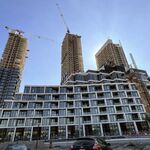TheTigerMaster
Superstar
China builds infrastructure much faster due to a confluence of factors. Entire subway, high way and rail systems are centrally planned years in advance, and there is continuity in policy such that any change in leadership would not derail the execution of these plans. It is also much easier to get capital from state owned banks, and land acquisition is less of an issue (this has changed in recent years, with various 'nail houses' propping up). Finally, they have huge economy of scale advantages. China builds around 500 km of subways a year, so they can do it cheaper and faster on a per-km basis.
How does this continuity policy work? Maybe there's something to be learned from them.
Of course, not being a democracy probably helps.




